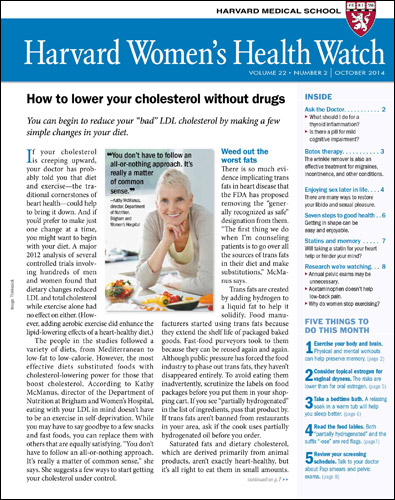Advancing maternal justice on both sides of the Atlantic

Positive pregnancy and birthing experiences go beyond merely having a healthy mother and baby — so, too, does maternal justice, a term that encompasses broad goals.
Affordable, timely, high-quality, equitable, and dignified care during and after pregnancy is essential for all birthing people. Maternal justice is a model of culturally sensitive care that aims to dismantle inequities in maternity care and maximize maternal health and well-being. It rests on human rights and requires us to chip away at racism entrenched in health systems.
How do race and ethnicity affect pregnancy and birth?
Globally, Black, indigenous, and people of color (BIPOC) have significantly worse maternal outcomes during and after pregnancy and childbirth. These unjust differences persist even after accounting for risk factors such as maternal age, medical conditions, and socioeconomic status. Additionally, differences in risk extend to the next generation. Babies born to BIPOC mothers are more likely to be stillborn or born premature, and to be admitted to the neonatal intensive care unit. Consider the following statistics from two sides of the Atlantic.
In the US:
- In 2018, the maternal death rate was 4 deaths per 100,000 live births.
- Black and American Indian/Alaskan Native birthing people experience the worst outcomes, and are three and two times more likely to die compared with white birthing people, respectively.
- Estimates suggest 60% of maternal deaths could be prevented.
In the UK:
- From 2015 to 2017, the maternal death rate was 2 per 100,000 live births.
- Black, multiple ethnicity, and Asian pregnant people were five, three, and two times more likely to die compared to white pregnant people, respectively.
- Estimates suggest 29% of maternal deaths could have been avoided by improved care.
- Babies of British BIPOC mothers have a higher risk of death, preterm birth, and lower birthweight than babies born to BIPOC mothers outside the UK.
What else affects outcomes for birthing people and newborns?
The health care systems in the UK and US differ primarily in payment structure, access, and midwifery model of care. The UK National Health Service (NHS) is a universal health care system largely provided free at the point of need since 1948. The US health system is a patchwork of insurance plans, which leaves millions without adequate coverage. Midwives deliver most pregnancy care in the UK, collaborating with obstetricians and other specialists as needed, which differs from the current US system of pregnancy care.
Yet in both countries, those who are BIPOC are more likely to experience discrimination, microaggression, mistreatment, and substandard maternal care.
So, while access to universal health care is essential, it is not enough to close the gap in maternal health.
Shifting away from blame and toward maternal justice
By definition, inequities are differences that are preventable, unfair, and unjust. However, the predominant narrative has blamed BIPOC mothers for their worse maternal health outcomes, for example by linking such misfortune only to higher rates of high blood pressure, overweight, and diabetes before and during pregnancy. This myopic focus fails to recognize how chronic systemic social injustice through racism disadvantages people by making it harder to make healthier choices.
The widening UK socioeconomic divide, persistent pay gap between Black women and white men in the US, austerity measures, and redlining continue to contribute to health and wealth inequities in 2020. Differences in health and well-being do not arise in a vacuum. They are underpinned by the social, economic, and political history of systemic racism embedded in colonialism and other systems of oppression. We cannot abolish health inequities without acknowledging their origins and designing solutions centered on anti-racism.
What is being done to dismantle inequities in maternal health?
In the professional sphere, the Society for Maternal Fetal Medicine calls for greater diversity in health workforce and leadership, universal health coverage, and community participation in research. The National Birth Equity Collaborative advocates for decolonizing healthcare education, and provides racial equity training on implicit bias, anti-racism, and respectful maternity care. Professional organizations such as the Royal College of Midwives (RCM), the Royal College of Obstetricians & Gynaecologists (RCOG), and the American College of Obstetricians & Gynecologists (ACOG) have established multidisciplinary racial equity task forces.
Community advocacy organizations, such as Commonsense Childbirth Inc. (CSC), Black Mamas Matter Alliance, Five X More, and Decolonising Contraception, bring together and amplify BIPOC voices.
Collectively, these efforts use advocacy, policy, and research to advance maternal justice. Ultimately, we need transparent systems designed to improve health for everyone by measuring, tracking, and responding to racial and ethnic inequities in maternal health.
Where does this leave birthing people, couples, and families?
If you are navigating your own pregnancy and birth — or supporting someone who is — it helps to keep in mind a key principle of maternal justice: everyone has the right to respectful, safe, high-quality care during and after pregnancy and childbirth.
- Trust your gut feeling. If something does not feel right, speak to a medical professional. If it still does not feel right, ask for a second opinion. The Hear Her campaign offers a list of warning signs to be aware of during pregnancy and in the year after birth.
- Do your research about pregnancy, childbirth, and the postpartum period using reputable sources, including organizations mentioned in this blog post.
- Look for an ally. This may be your partner, or a friend or family member you trust who can advocate for you on your behalf.
- Share your story and uplift the voices of other pregnant people and families.
About the Authors

Isioma D. Okolo, MBChB, MRCOG, DTMH, Contributor

Rose L. Molina, MD, MPH, Contributor
Disclaimer:
As a service to our readers, Harvard Health Publishing provides access to our library of archived content. Please note the date of last review or update on all articles.
No content on this site, regardless of date, should ever be used as a substitute for direct medical advice from your doctor or other qualified clinician.













